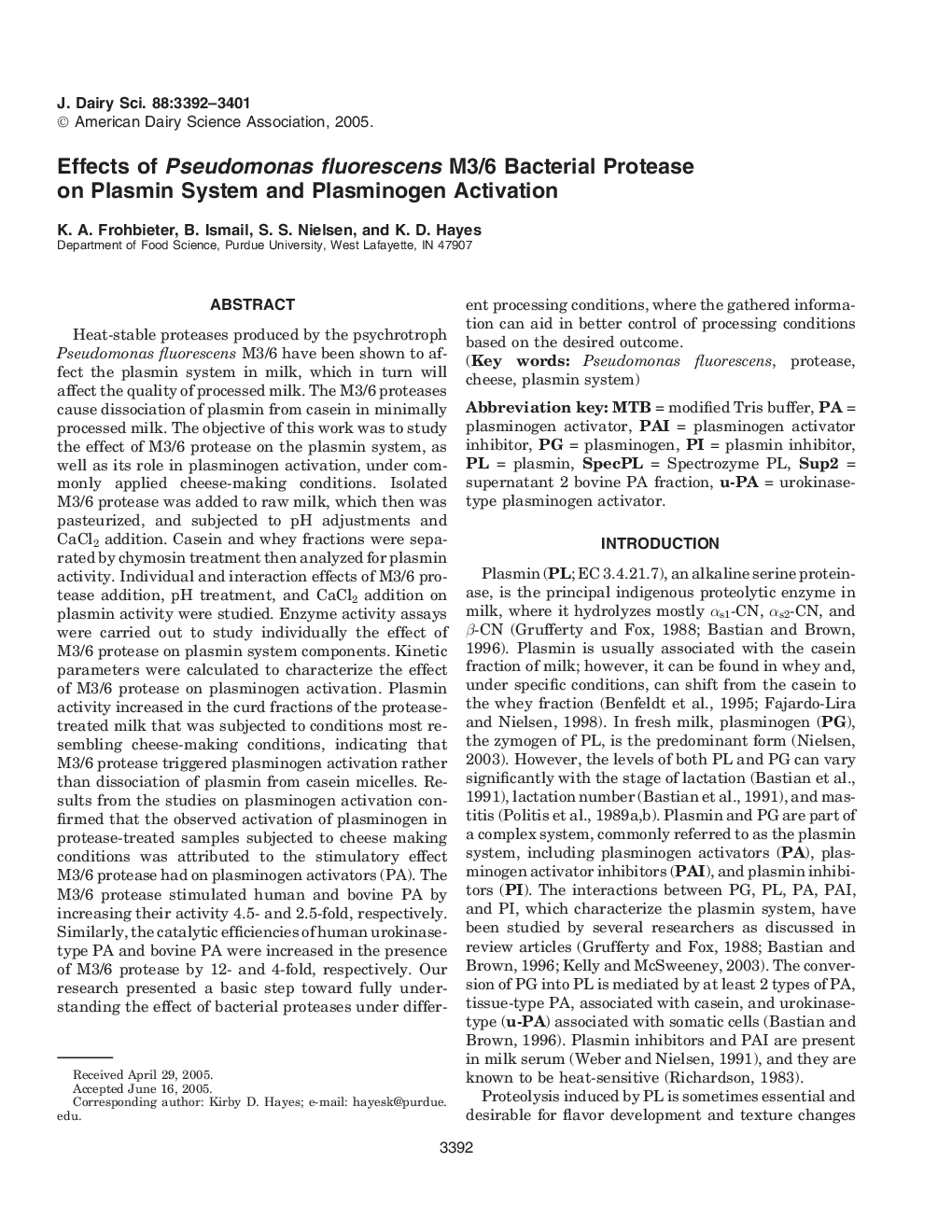| Article ID | Journal | Published Year | Pages | File Type |
|---|---|---|---|---|
| 2441698 | Journal of Dairy Science | 2005 | 10 Pages |
Abstract
Heat-stable proteases produced by the psychrotroph Pseudomonas fluorescens M3/6 have been shown to affect the plasmin system in milk, which in turn will affect the quality of processed milk. The M3/6 proteases cause dissociation of plasmin from casein in minimally processed milk. The objective of this work was to study the effect of M3/6 protease on the plasmin system, as well as its role in plasminogen activation, under commonly applied cheese-making conditions. Isolated M3/6 protease was added to raw milk, which then was pasteurized, and subjected to pH adjustments and CaCl2 addition. Casein and whey fractions were separated by chymosin treatment then analyzed for plasmin activity. Individual and interaction effects of M3/6 protease addition, pH treatment, and CaCl2 addition on plasmin activity were studied. Enzyme activity assays were carried out to study individually the effect of M3/6 protease on plasmin system components. Kinetic parameters were calculated to characterize the effect of M3/6 protease on plasminogen activation. Plasmin activity increased in the curd fractions of the protease-treated milk that was subjected to conditions most resembling cheese-making conditions, indicating that M3/6 protease triggered plasminogen activation rather than dissociation of plasmin from casein micelles. Results from the studies on plasminogen activation confirmed that the observed activation of plasminogen in protease-treated samples subjected to cheese making conditions was attributed to the stimulatory effect M3/6 protease had on plasminogen activators (PA). The M3/6 protease stimulated human and bovine PA by increasing their activity 4.5- and 2.5-fold, respectively. Similarly, the catalytic efficiencies of human urokinase-type PA and bovine PA were increased in the presence of M3/6 protease by 12- and 4-fold, respectively. Our research presented a basic step toward fully understanding the effect of bacterial proteases under different processing conditions, where the gathered information can aid in better control of processing conditions based on the desired outcome.
Keywords
Related Topics
Life Sciences
Agricultural and Biological Sciences
Animal Science and Zoology
Authors
K.A. Frohbieter, B. Ismail, S.S. Nielsen, K.D. Hayes,
